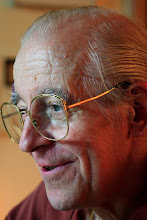Prada is an Italian fashion label that proved you can transform even the most mundane cloth—like waterproof parachute material—into a luxury item. The parachute cloth idea came out of a conversation between Prada founder, Mario Prada (??-1950), and his granddaughter Miuccia (1949- ) about her need for a practical work bag. The resulting bag, a mix of parachute material and high quality silk, is water and stain resistant, making it attractive to young working women. Furthermore, the women were willing to pour their pay checks into such a luxury because they thought that the bag would impress their bosses and friends. This is the logic behind why people buy luxury goods: they do not mind spending exorbitant amounts if it brings them happiness.
The Big Bertha golf clubs that Callaway Golf introduced in 1991 are good examples. Although the prices of Callaway clubs were three times higher than other brands, they were very popular among middle class customers. It was not long before Callaway Golf became the top ranking golf equipment manufacturer.
The American Boston Consulting Group described this consumption pattern of middle class customers spending more than usual on goods as ‘trading up’ or ‘new luxury’. The consumers of new luxury goods prioritise how they feel after buying something over analysing the craftsmanship of a good. Psychologists call this ‘emotional consumption’. When people buy merchandise, they consider their purchases a reflection on themselves. Therefore, they consider their own taste, personal satisfaction and cultural identity when making purchases. When Miuccia Prada came up with the parachute cloth bag, she wanted to produce luxury goods for herself, not others. Consumers also consider how a product would affect their social lives.
Lately when Korean office workers gather together over drinks there are two popular topics that come up: Avatar (the 2009 American epic science fiction film) and the iPhone (the Apple cell phone introduced in Korea early 2010). Both have to do with the new luxury consumption. According to the Korean Film Council (영화진흥위원회), Avatar earned 101 billion won (US$ 86.3 million) in Korea, easily putting Korea in the top-10 countries for earnings from the film. The new stereoscopic 3-D technology the film used attracted a huge number of viewers. They watched the film as if they were possessed by it. Koreans did not even mind paying twice as much for tickets to Avatar than they would for normal films.
The Big Bertha golf clubs that Callaway Golf introduced in 1991 are good examples. Although the prices of Callaway clubs were three times higher than other brands, they were very popular among middle class customers. It was not long before Callaway Golf became the top ranking golf equipment manufacturer.
The American Boston Consulting Group described this consumption pattern of middle class customers spending more than usual on goods as ‘trading up’ or ‘new luxury’. The consumers of new luxury goods prioritise how they feel after buying something over analysing the craftsmanship of a good. Psychologists call this ‘emotional consumption’. When people buy merchandise, they consider their purchases a reflection on themselves. Therefore, they consider their own taste, personal satisfaction and cultural identity when making purchases. When Miuccia Prada came up with the parachute cloth bag, she wanted to produce luxury goods for herself, not others. Consumers also consider how a product would affect their social lives.
Lately when Korean office workers gather together over drinks there are two popular topics that come up: Avatar (the 2009 American epic science fiction film) and the iPhone (the Apple cell phone introduced in Korea early 2010). Both have to do with the new luxury consumption. According to the Korean Film Council (영화진흥위원회), Avatar earned 101 billion won (US$ 86.3 million) in Korea, easily putting Korea in the top-10 countries for earnings from the film. The new stereoscopic 3-D technology the film used attracted a huge number of viewers. They watched the film as if they were possessed by it. Koreans did not even mind paying twice as much for tickets to Avatar than they would for normal films.

Evidently, times have changed. There are even luxury cookies now. Market O, a premium cookie made by the Korean Orion Corporation (오리온제과) recorded 50 billion won (US$ 41.4 million) in sales in its first year on the market, a new record. A KAIST (Korea Advanced Institute of Science and Technology, 카이스트) professor criticised Prada as “a trickster that sells nylon at the most expensive price in the world after coating it with culture and style.” In this era of emotional consumption and new luxury, Korean businesses will certainly have a headache if they want to cheat their consumers properly.
Giorgio Olivotto
Seoul, Korea
September 26, 2010

Nessun commento:
Posta un commento